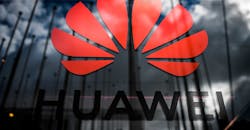The U.S. Commerce Department has started approving some suppliers’ applications for licenses to do business with China’s Huawei Technologies Co., partially reopening access to one of the biggest buyers of U.S. technology.
“We’ve had 290-something requests for specific licenses,” Commerce Secretary Wilbur Ross said in an interview with Fox Business Network late Tuesday. “We’ve now been starting to send out the 20-day intent-to-deny letters and some approvals.”
In May, the U.S. added Huawei to what’s known as the entity list in an effort to block U.S. companies from selling components to China’s largest technology company, which it accuses of being a threat to America’s national security. Huawei has denied those claims.
The listing, which requires American firms to obtain a government license in order to sell to blacklisted entities, has hurt some U.S. companies’ earnings and caused confusion as to what their relationship with their Chinese customer will be going forward.
Strategic Rival
“The Department is issuing these narrow licenses to authorize limited and specific activities which do not pose a significant risk to the national security or foreign policy interests of the United States," a spokesman for the Commerce Department said in a statement. “Huawei and its affiliates will remain on the entity list.”
The Trump administration’s curbs on the Chinese tech industry are part of its broader effort to contain Beijing’s rise as a strategic rival and economic superpower. The two nations are locked in trade talks aimed at reaching a truce after almost two years of negotiations and tariffs on some $500 billion of each other’s products.
At a meeting in early October, President Donald Trump told his team that some Huawei licenses could be issued for non-sensitive items, a person familiar with the meeting said, but Commerce waited until now to move on the directive.
It’s not clear which companies got approval to continue their business with Huawei and on what basis that decision was made.
Some U.S. chipmakers have argued that a blanket ban is ineffective because their products can easily be obtained from overseas rivals not subject to it. They’ve proposed resuming shipments of some goods that aren’t connected to security-related products and asked the administration to refine its stance and expedite the licensing process.
“We welcome the administration’s approval of export licenses for commercial semiconductor technologies that do not pose national security concerns,” John Neuffer, president and chief executive officer of the Semiconductor Industry Association, said Wednesday. “Sales of these non-sensitive commercial products help ensure the competitiveness of the U.S. semiconductor industry, which is essential to national security.”
Trump promised chip company CEOs in a meeting over the summer that he would speed up the license approval process and again reiterated that promise after a meeting with Xi Jinping in Osaka, Japan.
Amid the confusion, many companies have resumed partial shipments to Huawei. They’ve taken advantage of rules that define whether certain products are deemed U.S. made or not to use overseas subsidiaries and operations to avoid the ban.
About the Author
Bloomberg
Licensed content from Bloomberg, copyright 2016.
